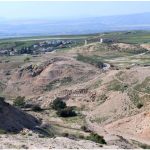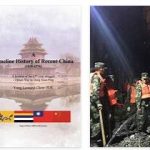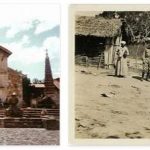The elections of May 1986 brought the Umma party of Sadia el Mahdi, who became prime minister, to power, while the presidency passed to Ahmed Ali el Mirghani. shari’ah) and a broad autonomy of the southern regions, was severely exacerbated, causing the rapid disintegration of the social and productive fabric, and with this of the organization of the state itself. In this context of strong tensions and political instability, a new military coup d’état found space (June 1989): power was assumed by a Council of the Revolution for National Salvation, whose president, General Omar Hassan Ahmed el Bashir, became head of state and government, establishing together with the leader fundamentalist Hassan al Turabi, appointed president of the National Assembly, a two-headed Islamic-military power. The new regime, banned from all political parties and trade unions, thus reduced all the spaces for dialogue with the opposition, also accentuating the tension in the southern regions for its alliance with the Islamic National Front. By pursuing the Islamization of the capital itself with determination, in the south of the country the government achieved significant affirmations in 1992 on the forces of the guerrilla, weakened by internal splits. On the level of international relations, on the other hand, relations with Iran, Libya and Iraq (supported during the Gulf War) were deepened, as well as the initiatives in support of fundamentalist groups. of North Africa. This policy led to the deterioration of relations with Egypt and with Western countries, so much so that, in the first months of 1996, the United Nations and the United States accused Sudan of supporting international Islamic terrorism and ordered the government to extradite the wanted fundamentalists. for the attack on Egyptian President H. Mubarak. Despite this, the power of Omar el Bashir was strengthened and was legitimized by the presidential elections in March of that year.
On the domestic front, thanks to the mediation of former US president J. Carter, in March 1995 the Sudanese government seemed to reach a truce with the separatists of the southern regions (SPLA and the South Sudanese Independence Movement), but soon the hostilities resumed with a victorious military offensive launched by the separatist organizations, supported by the Eritrea and Ethiopia (January 1997). A brief constitutional opening took place in 1998 when with a referendum a new Constitution was approved, which provided, albeit with many limitations, for multi-partyism. However, in December 1999 Omar el Bashir, to strengthen his leadership and to remove the Islamic leader, Hassan al Turabi, dissolved the National Assembly and declared a state of emergency from positions of power. As a next step, the president managed to re-establish diplomatic relations with Uganda and Egypt. With the subsequent elections of December 2000, the president was reconfirmed for five years as head of state and to silence the opposition he extended the state of emergency, thus guaranteeing himself broad powers and limiting individual rights. In the following years there were international requests for the government to find a reconciliation with the forces of the south of the country, Kenya, in 2005 signed an agreement on the administration of the disputed southern regions: an autonomous government was recognized in southern Sudan and a referendum on the independence of the region was planned by 2010. While the government and the SPLA agreed, in January 2004, the government troops launched an offensive in the Darfur region (western Sudan) where, in a situation of decades of conflict, the Sudanese Army / Liberation Movement (formerly the Darfur Liberation Movement) fought to respond to the attacks of the Arab Janjaweed populations: In 2005, according to remzfamily, it was estimated that more than 180,000 people had already died in this conflict. In the summer of 2005, J. Garang died in a plane crash and his death sparked unrest in the country, although Omar el Bashir assured that the peace process would continue; also in this period a new constitution was signed with which Sudan became a federal republic. On the Darfur front, in May 2006, a new agreement was signed in Abuja (Nigeria) promoted by the African Union between the government and the Sudanese Army / Liberation Movement, which however was not accepted by some of the formations rebels: the violence also extended to neighboring Chad.
To complicate matters, UN resolution 1706 (August 2006) which ordered the dispatch of a contingent to support the military presence of the African Union, was not signed by the Sudanese government. In February 2007 the presidents of Sudan, Chad and the Central African Republic jointly signed the “Cannes Declaration” in France in which they committed themselves to accepting a negotiating table for Darfur in the presence of the UN and the African Union, but in the May 2008 the clashes continued so much that the rebels of the JEM (Movement for Justice and Equality) attacked the capital Khartoum. Precisely because of the civil war in Darfur, in July 2008, President Omar el Bashir was formally accused of genocide, war crimes and crimes against humanity by International Criminal Court (ICC). In February 2009, the JEM and the government signed a declaration of intent with a view to a ceasefire. Presidential elections were held in April 2010, the first with the presence of several parties after twenty-four years. Many candidates, however, withdrew from the competition, which according to European and American observers was not taking place correctly. The electoral victory of the outgoing president was openly criticized by the international community. In November the clashes between the JEM and the government troops resumed. In January 2011, a referendum was held on the self-determination of the South of the country, a Christian and animist one, which had been in conflict with the Muslim North for decades; 99% of the voters voted in favor of secession. The possession of the Abyei oil region remains a source of tension between the two countries. After an agreement favored by the African Union in September 2012, Sudan and South Sudan withdrew their troops from the border area; diplomatic contacts continued, but without finding a solution. In the states of Southern Kordofan and the Blue Nile, a fraction of the SPLM took up arms in 2011, allying itself with some of the autonomist movements active in Darfur (in particular the JEM, Movement for Justice and Equity), which have been fighting since 2003 against the regular army and the Arab “Janjawīd” militiamen, protected by the government; a UN force (UNAMID) has been present in Darfur since 2007. Sudan and Chad have repeatedly accused each other of supporting the rebel movements active in the two countries.








